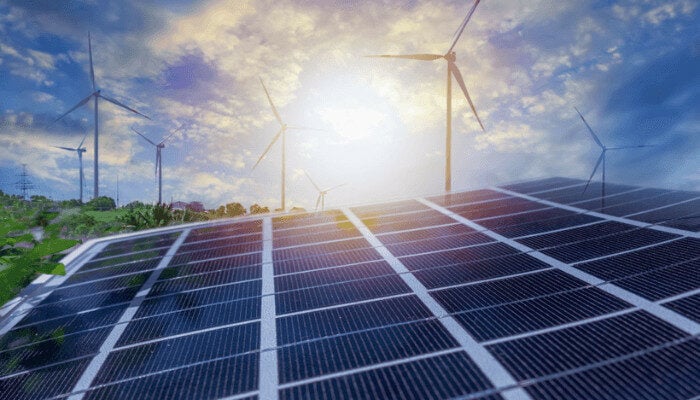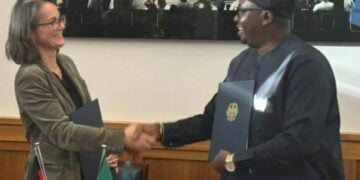Stakeholders in the renewable energy sector have called for stronger local solutions to bridge the energy gap in Nigeria amid Africa’s minimal share of global renewable energy investment.
The stakeholders who participated in the just-concluded Nigerian Renewable Energy Innovation Forum (NREIF) 2025 highlighted the urgent need for Nigeria and Africa to boost domestic investment in renewable energy to drive industrialisation and job creation.
Speaking during a panel session, the forum’s panel moderator, Rumundaka Wonodi, revealed that in 2024, the global renewable energy sector attracted $2.1 trillion in investment, but Africa secured only $40 billion—just two per cent of the total. He also noted that renewable energy deployment in Africa has been slow, with just 6GW added since last year.
Wonodi urged participants to focus on unlocking Nigeria’s investment potential in renewables and encouraged coordinated action among government ministries and agencies. “Our forum is charting the course and prioritising actions for the government,” he said, stressing the need for strategic collaboration.
The chief technical adviser to the Minister of Power, Adebayo Owoloniyi, echoed the call for greater local content development. He warned operators in the renewable energy sector against over-reliance on importation, saying it undermines Nigeria’s industrialisation efforts and limits job creation.
According to him, electricity access must be linked to the development of local industry to ensure sustainable growth.
Owoloniyi explained that the ministry’s Nigeria First policy focused on increasing local participation in energy projects and advised that government subsidies be channelled into initiatives that promote industrial advancement and benefit citizens’ incomes.
The chief executive officer and managing director of Infrastructure Corporation of Nigeria (InfraCorp), Dr Lazarus Angbazo, highlighted financial challenges facing Nigerian investors, particularly the lack of access to local currency funding.
He called foreign currency-dependent financing unsustainable and emphasised InfraCorp’s aim to build market support for long-term, sustainable investments across infrastructure sectors, including energy.
The forum’s insights underscore the need for Nigeria to unlock local resources and strengthen policies to enhance renewable energy investment, helping Africa close its widening energy gap.
Recall that the managing director of REA, Abba Aliyu, had on Tuesday called for domesticating the technologies, industries, and capabilities required to build a resilient renewable energy hub.
said that across the world, the energy transition is accelerating, driven by advances in solar technology, battery storage, and digital energy systems, hence the need to focus on building local capacity.
Aliyu, speaking at the Nigerian Renewable Energy Innovation Forum (NREIF) 2025, noted that even though the African continent holds nearly 60 per cent of the world’s solar resources, it currently attracts less than three per cent of global renewable energy investment.
“The challenge before us is clear: we must convert this immense comparative advantage into competitive strength — by building industries, nurturing innovation, and driving the kind of local value creation that secures our place in the clean energy economy. For Nigeria, this moment is especially urgent.
“The theme for this year, ‘The Nigeria First Policy’, could not have come at a better time. It captures our collective aspiration to domesticate the technologies, industries, and capabilities that will power our energy future.
“Nigeria has deployed renewable energy systems in thousands of communities, institutions, and industrial clusters for years. But to secure our long-term sustainability and economic competitiveness, we must now go further — to ensure that what we deploy is increasingly designed, assembled, and manufactured in Nigeria.
“At the Rural Electrification Agency, we see this shift as both a necessity and an opportunity,” he said.
He noted that with an active project portfolio and pipeline exceeding $3 billion, spanning programs such as Rural Electrification Fund (REF), Distributed Access through Renewable Energy Scale-up (DARES), Nigerian Electrification Project (NEP) and the National Public Sector Solarisation Initiative (NPSSI), REA’s responsibility now extends beyond electrification.
The Agency’s task for him is to ensure that this pipeline generates the highest possible domestic value by catalysing local industries, supporting innovators, and unlocking green jobs across the value chain.
“That is precisely why the NREIF was established — to bring together the entire renewable energy ecosystem: from innovators to financiers, from academia to regulators, from manufacturers to developers — all working together to ensure Nigeria captures the full value of its energy transition.
Also speaking at the event, Adebayo Adelabu, minister of power, said that the Rural Electrification Agency (REA) ‘s efforts to extend access to unserved communities, promote mini-grids, and promote Distributed Renewable Energy are reinforcing the country’s commitment to domestic manufacturing and innovation.
According to him, the Ministry and the REA are shifting the national narrative from energy access to energy industrialisation and from deployment to local value creation together.
He said, “In the power sector, the Nigeria First Policy reflects our determination to ensure that the next generation of clean energy technologies, from solar panels to battery energy storage systems, deployed across the country proudly carry the label ‘Made in Nigeria’.
He explained that the federal government is pursuing a comprehensive, multi-pronged approach to reposition the Nigerian power sector for sustainability, efficiency, and growth.
This approach he said, spans critical pillars which include legislation, policy reforms, infrastructure development, energy transition and access expansion, and local content and capacity development with each designed to address structural challenges, unlock private capital, and enhance service delivery across the electricity value chain.
Speaking on legislation, the minister said the enactment of the Electricity Act 2023 remains a significant milestone, providing a robust governance and regulatory framework for the Nigerian Electricity Supply Industry (NESI).
“The Act devolves regulatory powers to the states, enables subnational markets, promotes competition, and empowers private participation across the value chain. This represents a clear shift towards a liberalised and investment-friendly electricity market.
”Since its passage, 15 states have received regulatory autonomy to establish subnational electricity markets, with one fully operationalised. We are working actively with these states to ensure strong alignment between the wholesale and retail markets,” he said.





